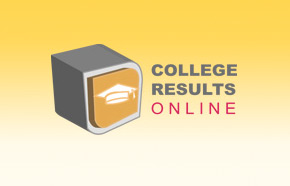Gap options between high school & college
Bridge the chasm between high school & college with a gap year experience
By J.D. Wyczalek
Golly-gee, Mom, Dad, I really want to (insert blank) after I get out of high school and before I go off to college. These may or not be dreaded words you desire to hear from your hopeful college student. A parent thought process might be finish high school, take a few weeks off and get into college and “get ‘er done.” Students might have a different idea.
So, what is a gap year? A gap year is the practice of taking one year off between high school and college to travel, volunteer or intern.
Taking a year off between high school and college is a common practice in Australia and the United Kingdom. This practice is catching on here in the States.
Here are a couple reasons why you should NOT take a gap year.
1. Your student forgot to fill out the admittance application and the deadline has passed. (Know all the deadlines. There is a reason why the first part of that word is dead, dead-line.)
2. Your student did not want to take the SAT or ACT test and blew it off. (There are some colleges that do not require standardized testing. Contact AZCollegePlanning.com for this list.)
A growing number of high school seniors are seriously cringing to the point of falling on the floor in the fetal position at riding the academic conveyer belt from preschool all the way through college and possibly beyond. They may be burnt out. Or not quite ready for college. Or they want to explore a few interests before deciding what to study in college.
So instead of packing bags in anticipation of freshman year, they’re volunteering in Port Arthur TX or teaching in Thailand. They’re interning to help figure out what they want to do with their lives.
The gap year does not mean that a student is doomed to remain degree-less forever. Admissions officers across the country say very few actually drop off the college radar.
Taking a gap year can actually make students better focused and ready for the rigors of the academic college life.
Some big brand-name colleges like Harvard, Princeton, Yale and MIT like it. In fact they encourage students to take a gap year. Harvard, arguably the most competitive university in the country believes so much in the gap year that they encourage every student they admit to consider a year off before beginning college life.
Excerpt from Harvard’s website
For over thirty years, Harvard has recommended this option (gap year). Normally a total of about fifty to seventy students defer college until the next year.
Harvard's daily student newspaper, The Crimson reported (5/19/2000) that students who had taken a year off found the experience "so valuable that they would advise all Harvard students to consider it."
The results have been uniformly positive. One student, noting that the majority of her friends will simply spend eight consecutive terms at Harvard, "wondered if they ever get the chance to catch their breath."
During her year off, the student quoted above toured South America with an ice-skating company and later took a trip to Russia. Another interviewed in the article worked with a growing e-commerce company (in which the staff grew from ten to a hundred during the year) and backpacked around Europe for six months.
Princeton announced a new program called the “bridge year” that will allow newly admitted students to spend a year performing public service abroad before beginning their freshman year.
The reason behind higher education’s support of the gap year is clear. There actually is a method to their madness. A better-prepared student means higher completion rates. Completion, graduating and a degree are what matters.
A gap year may help your student establish a graduation goal and timeline. Parents should remember that getting your student into college is only half the battle. According to the College Board, three out of five students who enter a public four-year college don’t manage to catch a degree within five years. (Currently it’s 6 years.) And nearly 30 percent of all students who enter college don't return for their sophomore year.
With that, not all gap years are created equal. If you have a student determined to take a year off, here are some guidelines to follow:
Create a budget and consider having the student pay for the gap year experience.
Remember, it’s about learning responsibility in the real world. You should require that your student create an in-depth budget for his/her year, in addition to telling you how he/she plans to contribute financially. While many students dream of a year of unfettered travel, backpacking aimlessly as the wind blows through Europe and Asia, it’s perfectly reasonable to require your student wait some tables or make a few espressos for a few months to pay for all or some of the year.
In first
A gap year should be a measured decision, not a procrastination technique. It should never be used to avoid taking the SAT or ACT on time, stall the need to fill out college applications, or jump into Senioritis early. If you have a high schooler under your roof who’s dreaming of taking a year off, keep him/her on track. Prepare as if your student is going to college as planned. Once your student is admitted, call the college to request a deferment, which most admissions offices will gladly grant. BUT you have to be admitted first AND know what your prospective college rules are regarding taking a gap year.
Create an alternate plan
The best way to start a gap year is with an admittance offer in your hot little hands to your dream school. But for students who didn’t get into their college of choice the first time around, a gap offers a second crack at it. Now you have options. And possibly reapply. My college roommate gave me the best advice. He said I should not quit my job UNTIL I had another one to replace it. Same goes here. Having an admittance letter with the opportunity to postpone admission for a year is far better and less stressful upon your student’s return.
Chiseled in stone, sort of…
The most successful gap years are full of unexpected surprises along the way. This is a once-in-a-lifetime opportunity, a chance for your student to see the world and figure out their place on this rock. Figuring out what your student wants to do while in college can be expensive and push the graduation date out even further costing even more. If they’re shooting for independence, have your student prove they deserve it by having them research and come up with a course of action. Not a whim, an actual plan. Create a budget, schedules and do the work making phone calls to land that dream internship. The planning phase is just as crucial to the gap year, and just as much a learning experience, as the gap itself. It’s perfectly OK to deviate from the plan once the year begins, but starting without a plan is a recipe for disaster, especially if there is no plan to return to college or no college to return to. J.D. has said before and will say it here, “know before you go. Research is a vital element to gap year planning.”
So, which programs are worth taking a year off? Is there a moral, spiritual or community passion that your student has? Perhaps building houses in the inner city or teaching English in Ghana, assist cleaning an oil spill, build homes for underprivileged families in Jamaica or helping rebuild New Orleans, or some other devastated area. There are lots of options and worthwhile causes.
Should your future college student have a gap year before heading off to college? That depends on your student, your budget, and your student’s budget. Sometimes the difference between an 18 year old and a 19 year old is a world of difference especially if your student has seen the world from a new perspective.
Here are a few websites that have gap year options.
http://www.interimprograms.com http://www.gapyear.com http://www.habitat.org http://www.planetgapyear.com http://www.americorps.org http://www.gapyear365.com
(Please note AZ College Planning is not affiliated with any of the above website nor do we endorse any of them. These website are listed here for your convenience. Please conduct the proper research before committing to taking a year off before going to college or to committing your time to a specific organization.)
Go, explore, live, learn, grow.






[…] Nothing interests me…I don’t know what I want to do. Some students are not ready to go on to higher education right out of high school. Some need time to mature, to find out what interests them, and to devise a plan. That’s OK. In cases like this it’s better to take a year or two after high school to learn about your own interests, skills, and strengths. Or consider the military. Far too many high school graduates go to college without declaring a major because they don’t know what they want to do. They are told to go to college and take different classes to experience new things so they can “find” themselves. While this may work for few, it is seldom a good plan. Higher education is too expensive to dabble in for the purpose of “discovering” yourself. That should be done before you get there. Get in and get out in 4 years. You don’t need to know exactly what job you expect to obtain once you graduate high school, but you should know what career path fits you before you commit to a program of higher education. See the Gap Year article. […]